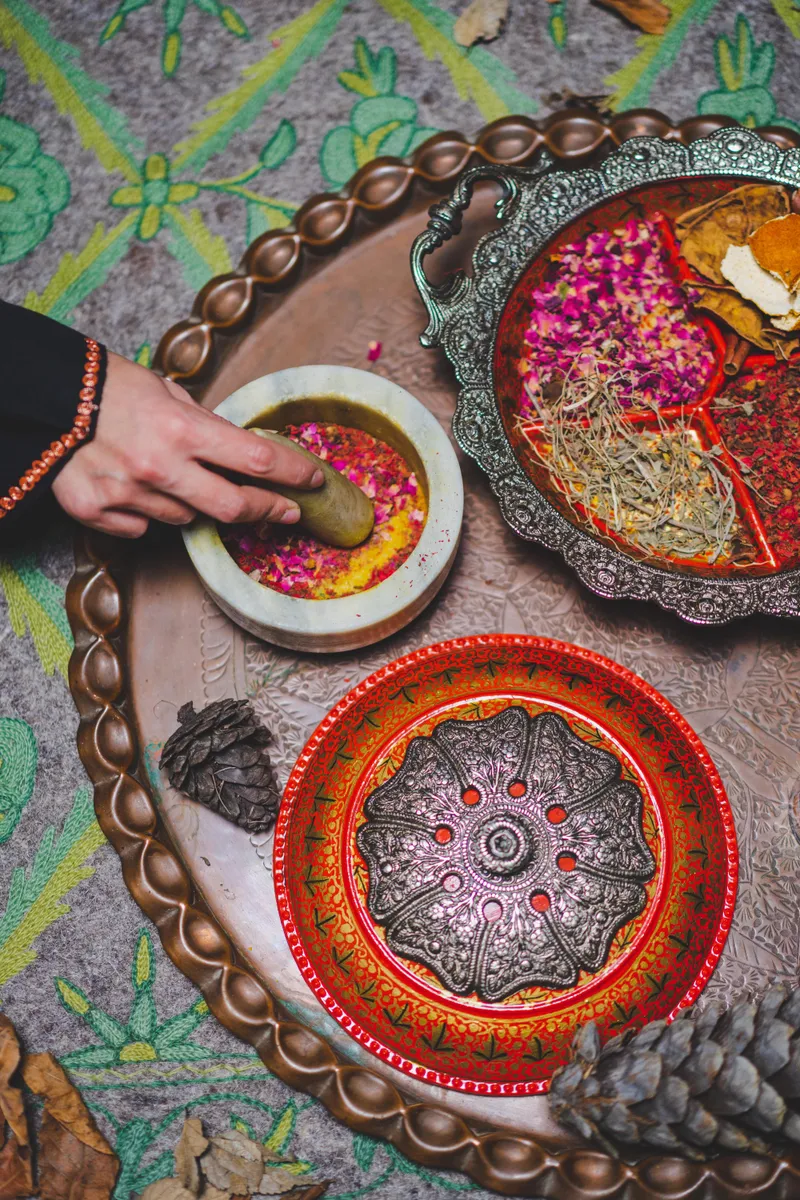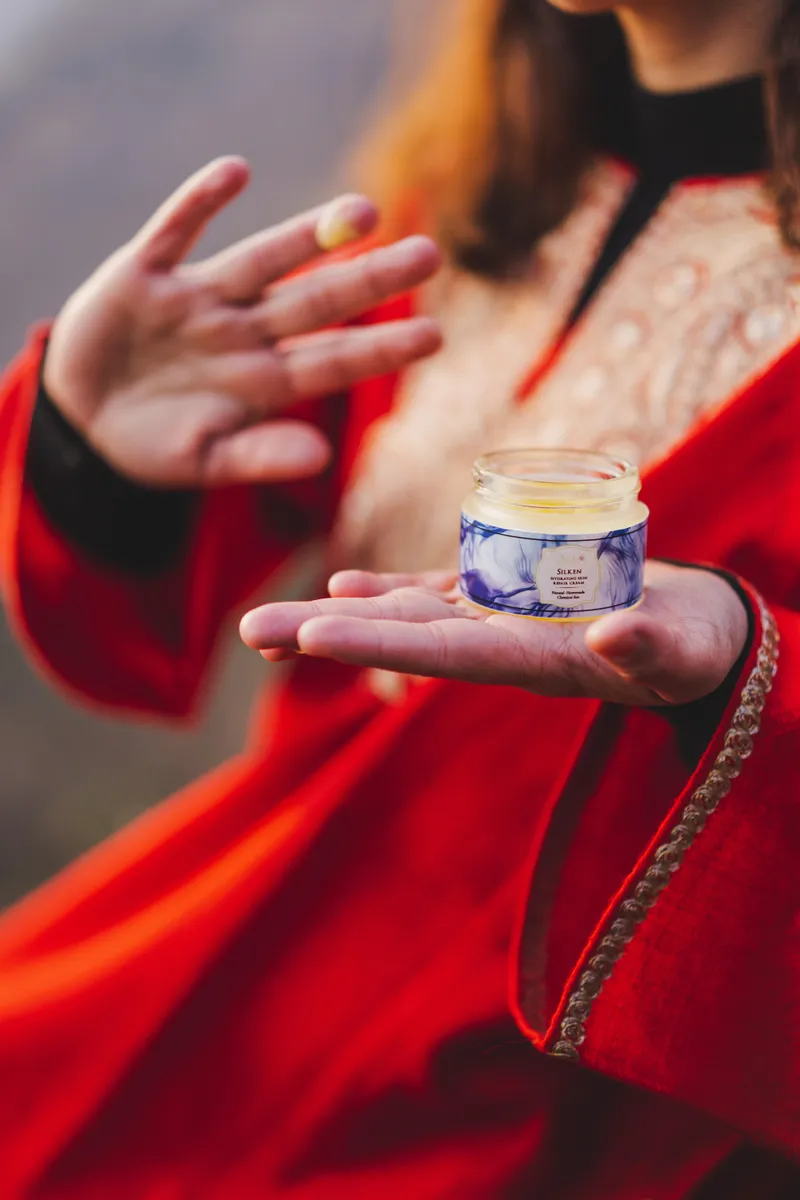This Kashmiri entrepreneur is bringing her grandmother’s heirloom skincare recipes to the mainstream
Malika Shah, a lawyer-turned-entrepreneur, is the founder of Masha by Malika, a Kashmir-based skin and haircare brand that uses homegrown ingredients and employs local women.
Think Kashmir and images of pashminas and saffron, apple trees and snow-capped mountains may cross your mind. But, a new generation of women entrepreneurs, tech-savvy and with a keen business sense, are all changing the narrative – and how!
Meet Malika Shah, a lawyer-turned-entrepreneur, who is based in Rajbagh in Kashmir, and runs Masha by Malika, a skincare and haircare brand. Malika, a recipient of the Young India Fellowship (YIF) programme at Asoka University, and also a Chevening Scholar, did her master’s in law at UCL London, and intended to pursue a career in Law.
But, once back from London, Malika says her golfer father, Ghalib Shah, who has played with the likes of Jeev Milkha and Jyoti Randhawa, gently persuaded her to take up golfing.
“I did try my hand at it. But, since I was always academically oriented, I never really took sports as seriously,” she tells HerStory, adding that by then, she had reached a stage where she didn’t want to study further either.
Malika’s heart lay in all things creative, and when she found she had some free time on hand before she decided on her next steps, she turned to look closely at her grandmother’s heirloom recipes.

Secrets of the Valley
“I created some oils, which worked wonderfully for my skin. I thought why not put it on Facebook because everybody was selling it there,” says Malika, who was part of a group comprising Kashmiri women from the world over. “It was a group of around 30 to 40,000 women, and never in my wildest dreams did I imagine that one simple post would turn into a business venture eventually,” exclaims Malika, who currently also has a day job teaching law, and works as an assistant professor at a university.
Back in 2019, when people started ordering and then reordering, and slowly but steadily orders started pouring in from even places as far as Andaman and Nicobar islands, Malika registered the brand under the name Masha by Malika, and started on a small scale, putting together a few handmade products with locally available resources.
These included the Kashmir soap, made of ingredients that one primarily associates with the state, and an illuminating face pack packed with saffron. “Pure Kashmiri honey, almond oil, goat milk, and rose petals go into this soap. It's wonderful on dry to normal skin. My mother is someone who has extremely sensitive skin and she never uses face washes and soaps. But, she's in love with the Kashmiri soap,” Malika says.
She adds that when she launched the company, the idea was to turn indigenous Kashmiri herbs into affordable natural beauty products and empower communities in the process.
“The production process involves local women from marginalised communities. We are passionate about teaching them a skill, and empowering them to earn their livelihood. We also believe in inclusivity, from the sourcing stage to production and consumption. While all ingredients are ethically sourced from local farmers, we believe in affordable luxury because wellness shouldn’t be exclusive,” remarks the entrepreneur.

When she started out, Malika roped in an expert in medicinal plants, who helped her formulate the products and preserve them to suit a limited shelf life. Masha by Malika currently employs about five local women, who help the brand with manufacturing, packaging, inventory tracking, and logistics. The products are all manufactured at Malika’s home-turned-manufacturing unit. “We had this house which was lying unused. I thought the space was just right to run a small unit, and so we have set shop here.”
Although she started out on Facebook, Malika now runs her enterprise completely on Instagram and WhatsApp. The products are all made in limited quantities, and Mallika and her team send out a digital product catalogue when a customer reaches out.
“That's primarily because we like to keep it as a small business, and keep changing our products depending on ingredients that are available during the season. In such a case, maintaining a website becomes difficult, which is why we have a product catalogue. Customers can reach us on WhatsApp or our Instagram page. We have also retailed at select stores around Kashmir,” Malika says. The brand currently has 15 to 20 products.
Malika says even though women are making strides in Kashmir, there are still a lot of women who are not very comfortable going out and working.
“First of all, there are no employment opportunities, as there are not enough private sector companies yet. A lot of women want to work from home or have flexible or limited working hours, since we also have a conservative society. We can't be talking about elites only; there are all sections of society, and some of them are conservative.”
At Masha, Malika has ensured products are created in small batches, and so, women are not really required to work for seven or even five days a week. “They come, prepare a batch, pack it, and then we have other women to dispatch the products. That allows flexibility, and that’s how I think I've been able to interest women in joining my small enterprise,” she says.
The company currently earns anywhere between Rs 12 lakh to 15 lakh per annum, and Malika is not in a hurry to get external funding.
“I do want to scale it though. Ultimately, my aim is to leave my job and be able to dedicate myself full-time to the business. It has to be profitable enough for me,” says Malika. One way Malika has been vying for visibility is by taking the brand to exhibitions in Delhi.
As for future plans, Malika has also been exploring the hotel industry to customise toiletries, and the wedding gifting segment, besides also aiming for the babycare segment. “Skin and hair care products that are completely natural are still kind of new in the baby segment. So, these are all in the pipeline,” Malika says.
Speaking about the burgeoning entrepreneur ecosystem in the Valley, Malika gives credit to the pro-entrepreneurship programmes laid out by the government.
“There are so many startup and entrepreneurship programmes tailored for women, and also events that provide you with spaces where you can exhibit your product. These have helped women entrepreneurs quite a bit. Also, there have been other women who have taken those first steps and gone out and built businesses, and the society here has accepted them. They have set an example for youngsters like us,” Malika concludes.
Edited by Teja Lele







